Much of the province has completed harvest of both winter and spring cereals over the last two months. Growers must now make a decision on what to do with these […] Read more

Managing bare soils in the field after harvest
OMAFRA Field Crop Report for the week of August 26

How do cover crops impact nitrous oxide emissions?
OMAFRA Field Crop Report for the week of August 19
Cover crops help build soil carbon, reduce erosion, and can offset crop nitrogen fertilizer requirements. But when it comes to nitrous oxide (N2O) – a greenhouse gas that contributes about […] Read more
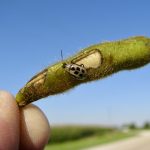
Scout your soybeans for pest, disease issues
OMAFRA Field Crop Report for the week of August 5
August is the most critical month for soybean growth, development, and setting final yield. It’s important to scout fields to assess production issues and take control measures if necessary to […] Read more
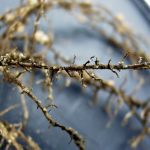
Corn diseases, fungicide timing, fungicide resistance and nematode surveys!
OMAFRA Field Crop Report for the week of July 22
Corn diseases such as tar spot, northern corn leaf blight, common rust, gray leaf spot are easy to spot this year especially in areas which have had considerable rain events. The […] Read more
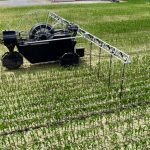
Considerations for the right place for manure
OMAFRA Field Crop Report for the week of July 8
When it costs more to apply manure to high fertility fields than the manure is worth, it may be time to consider other options. Fertilizer is expensive. Anyone growing crops […] Read more

Nodulation and nitrogen use in dry beans
OMAFRA Field Crop Report for the week of July 1
In late June, adzuki beans that had been in the ground for 3 weeks already had a few nodules on the roots (see photo at top), and the nodules were […] Read more

Crop Report: The good, the bad and the difficult
OMAFRA Field Crop Report for the week of June 20
Crop growth and conditions continue to be variable across the province. While crops look good in areas that were able to be planted either early or as per normal and […] Read more
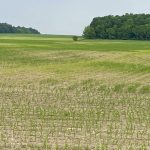
Spring planting challenges continue for Ontario growers
OMAFRA Field Crop Report for the week of June 13
The 2024 planting season will become the new bookmark for comparing challenging spring conditions for planting. Heavy-textured soils combined with frequent rainfall have resulted in significant acres intended for corn […] Read more
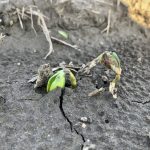
Corn planting nears completion, first cut alfalfa begins
OMAFRA Field Crop Report for the week of June 6
Field Conditions Significant planting progress has been made in many areas across the province over the last two weeks. Some growers were able to wrap up their corn, soybean and […] Read more
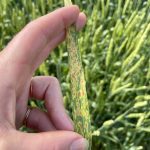
Field conditions in Ontario seen as ‘frustrating’
OMAFRA Field Crop Report for the week of May 30
It continues to be a frustrating spring for field conditions through much of the province. Frequent precipitation has continued to cause delays in tillage, planting, and spraying in some areas, […] Read more
